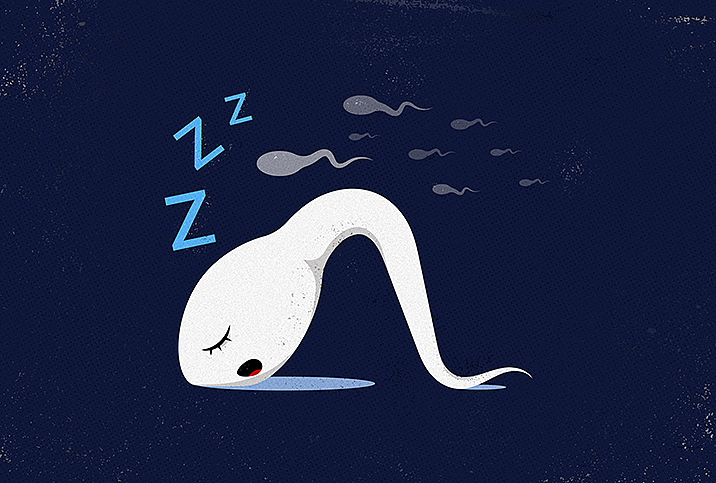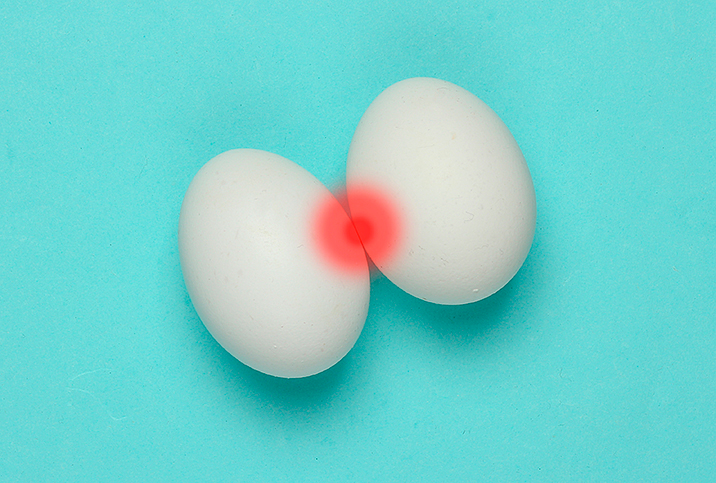Chronic Prostatitis Can Contribute to Infertility

If the penis and testicles are every guy's best friend, always there for you and always ready for a good time, the prostate gland is an annoying distant cousin: He only shows up when something's wrong.
When everything's going well, the prostate often goes unnoticed—to the point where many men don't even realize they have one, much less understand its importance.
But as men age into their 50s and beyond, their doctor's focus in terms of reproductive health is inevitably drawn to the prostate. Beyond getting your periodic probing and knowing the signs of prostate cancer, you should be aware of some other prostate issues.
In particular, men who experience prostatitis need to understand how it can affect fertility.
What is prostatitis?
Prostatitis is inflammation of the prostate gland that may be caused by bacteria or unknown sources. Risk factors include previous urinary tract infection (UTI), sexually transmitted infections (STIs), injury, bladder obstruction or an enlarged prostate.
The four types of prostatitis include acute bacterial prostatitis, chronic bacterial prostatitis, chronic nonbacterial prostatitis (also known as chronic pelvic pain syndrome, or CPPS) and asymptomatic inflammatory prostatitis.
Chronic bacterial prostatitis is inflammation of the prostate that lasts for three months or longer. A growing body of evidence indicates prostatitis may have a significant effect on a man's ability to reproduce.
How does prostatitis affect fertility?
A couple's conception problems can be traced back to the male partner, either solely or in part, about 40 percent of the time, according to the National Institutes of Health (NIH), and the quality of a man's sperm is frequently to blame.
Labs test for three main components when you get a semen analysis:
- Concentration: the number of sperm in a given sample
- Motility: how the sperm move
- Morphology: the size and shape of the sperm
Given the delicate nature of producing sperm and the complex set of events required to do so, it should come as no surprise that any infection affecting part of the male reproductive system can have a negative impact on sperm.
A 2012 review in the World Journal of Urology looked at data from previous research projects and found that conditions such as urethritis, epididymitis and chronic pelvic pain syndrome could have a negative effect on semen quality.
Chronic bacterial prostatitis and fertility
Another study published in 2014 in the journal Scientific Reports found that the connection between infertility and chronic bacterial prostatitis, in particular, was significant.
The researchers looked at seven relevant studies pulled from databases around the globe and reported that patients with chronic bacterial prostatitis had significantly reduced sperm vitality, sperm total motility and percentage of progressively motile sperm.
The meta-analysis also showed that chronic bacterial prostatitis had no apparent effect on sperm concentration (sperm count), semen volume or semen liquefaction.
This is an important piece of the puzzle to keep in mind because at-home testing kits usually are only able to determine sperm count, not motility or morphology.
Conclusions
While the direct causal link between chronic bacterial prostatitis and sperm vitality and motility is not yet clear to researchers, it's nonetheless important for men who plan to have a family to understand that there clearly is one.
If you're trying to conceive and experience any of the symptoms of chronic prostatitis—burning sensation while urinating, bladder pain, frequent or urgent urination, difficulty starting your stream or painful ejaculation—be sure to speak with your doctor about possible treatments. Your chances of having biological kids might just depend on it.


















